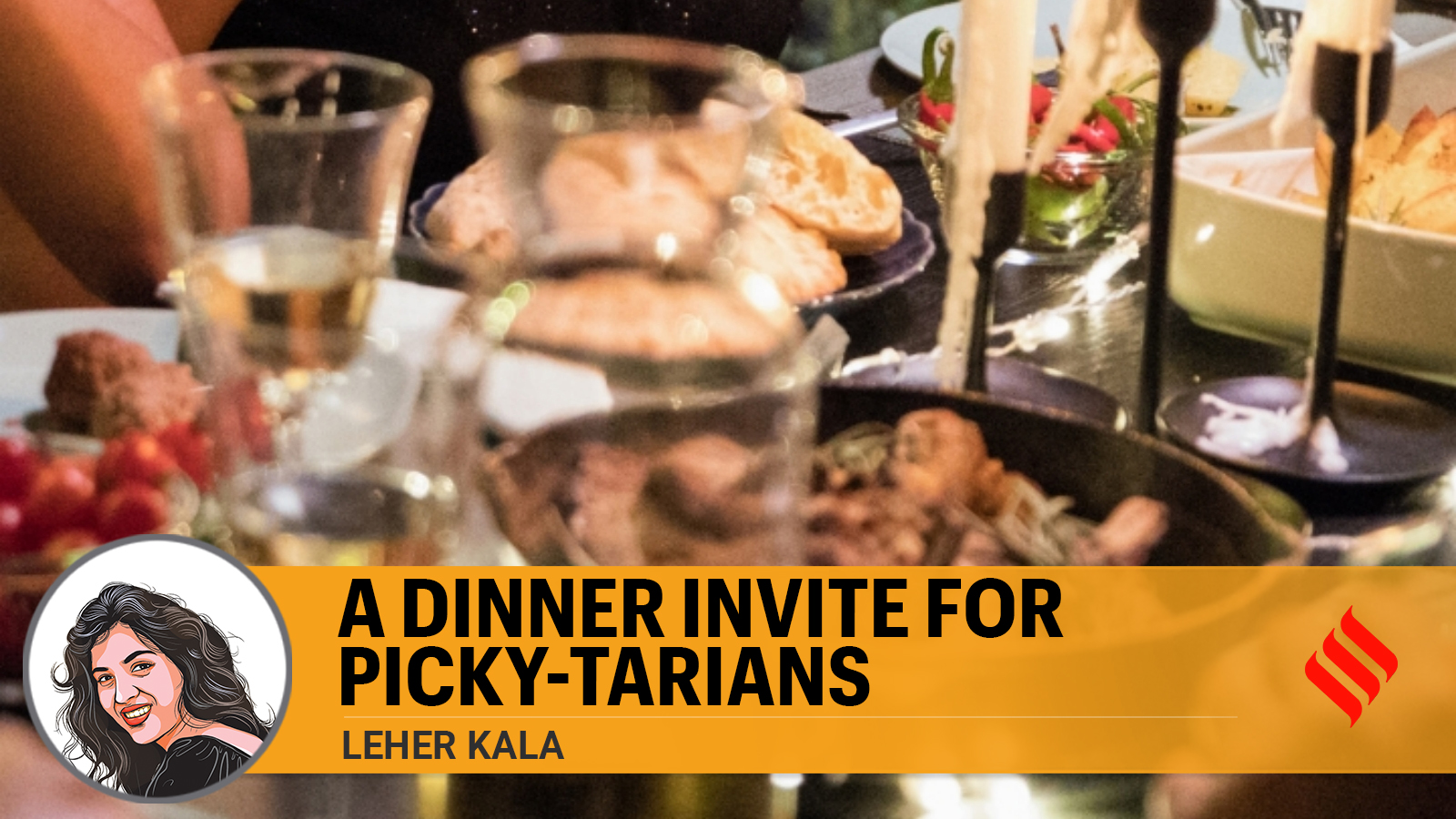Opinion A dinner invite for picky-tarians
Personally, I am of the opinion that unless there’s a possibility that you may keel over and die, or break out into hives because of an allergic reaction to something, it’s only polite to eat what’s served, one’s own culinary requirements be damned.
 Even a decade ago, it would have been considered irredeemably rude to call a hostess and instruct her on what to cook. For most of history, strict social norms have dictated behaviour and dinner party conversation.
Even a decade ago, it would have been considered irredeemably rude to call a hostess and instruct her on what to cook. For most of history, strict social norms have dictated behaviour and dinner party conversation. Recently, a friend invited me for dinner. After I thanked and accepted her invitation, she asked me if I had any “dietary preferences”. Foxed, I responded that I’ll have what everyone’s having. Apparently, in this era of gluten and lactose intolerance, Atkins and Keto diets, some kind-hearted hosts feel compelled to cater to their guests’ idiosyncrasies or whatever nutrition fad they’re currently following. Or maybe, it’s January. Everyone understands that everyone else is trying to put their best (health) foot forward.
“It’s no problem, ok?” said my pal and proceeded to list out her dinner guests’ depressingly narrow specifications, which to me at least served as a stark reminder that we’re all getting old and rigid. There was a vegan, a pescatarian, an intermittent faster and someone on OMAD —One Meal a Day— who most considerately said he’d come for the company but wouldn’t eat. Considering the stunning range of picky-tarians around, organising a convivial evening seems fraught with challenges these days.
Personally, I am of the opinion that unless there’s a possibility that you may keel over and die, or break out into hives because of an allergic reaction to something, it’s only polite to eat what’s served, one’s own culinary requirements be damned. Needless to say, without complaining. We were brought up in the 1980s, a time of frugality and zero fripperies. It left in the hearts of the best of Indians only the frailest illusions about our grand country’s future prospects. In every aspect of life you made do with what was available, that’s all. Not exactly a bad philosophy for living because a frugalist thinks strategically, which is why it was, perhaps, inevitable that an Indian company invented the cheapest car on Earth. I remember waffling over a ghastly glass of milk as a child, protesting feebly over a fly in it, which my grandmother deftly fished out with a finger and handed right back to me. No-frills India was minimalist way before Minimalism became a movement.
However, it turns out etiquette has changed over the years and my point of view is somewhat outdated. According to a Reader’s Digest article, in 1923, guests were expected to gush and praise the party giver’s effort, however badly the food went down. But in 2025, plenty of people follow complicated diets and hosts are happy to accommodate them, as they want their guests to enjoy the evening. It’s a good sign so many can afford to cast lavish attention on their dinner parties and painstakingly create a variety of fine dining distinctions. And indeed, being slightly obsessed and finicky in our food choices is neither frivolous or sinful. As Thoreau noted, “He who distinguishes the true savor of his food can never be a glutton; and he who does not cannot be otherwise.”
Even a decade ago, it would have been considered irredeemably rude to call a hostess and instruct her on what to cook. For most of history, strict social norms have dictated behaviour and dinner party conversation. Put on any period film, perfectly coiffed characters are stiffly seated around a table, talk focussed on pleasantries, steering clear of anything controversial. We’re much more casual now. Blame the Facebook prompt ‘What’s on your Mind?’ that gave people the courage to moodily display their inner emotional realities — comparatively, revealing a taste preference is far easier. By now, in 2025, the concept that we should carefully control what personal information we share, or hesitate to ask for what we want, or need, is almost dystopian. So if you’re carb-free, you may loudly assert you’re carb-free, without a trace of embarrassment. The worst that can be said is it’s all a bit silly, like much ado about nothing. Put it down to the default human setting, the restless search for optimisation or self improvement, and the fervent hope of landing somewhere better than before.
The writer is director, Hutkay Films



